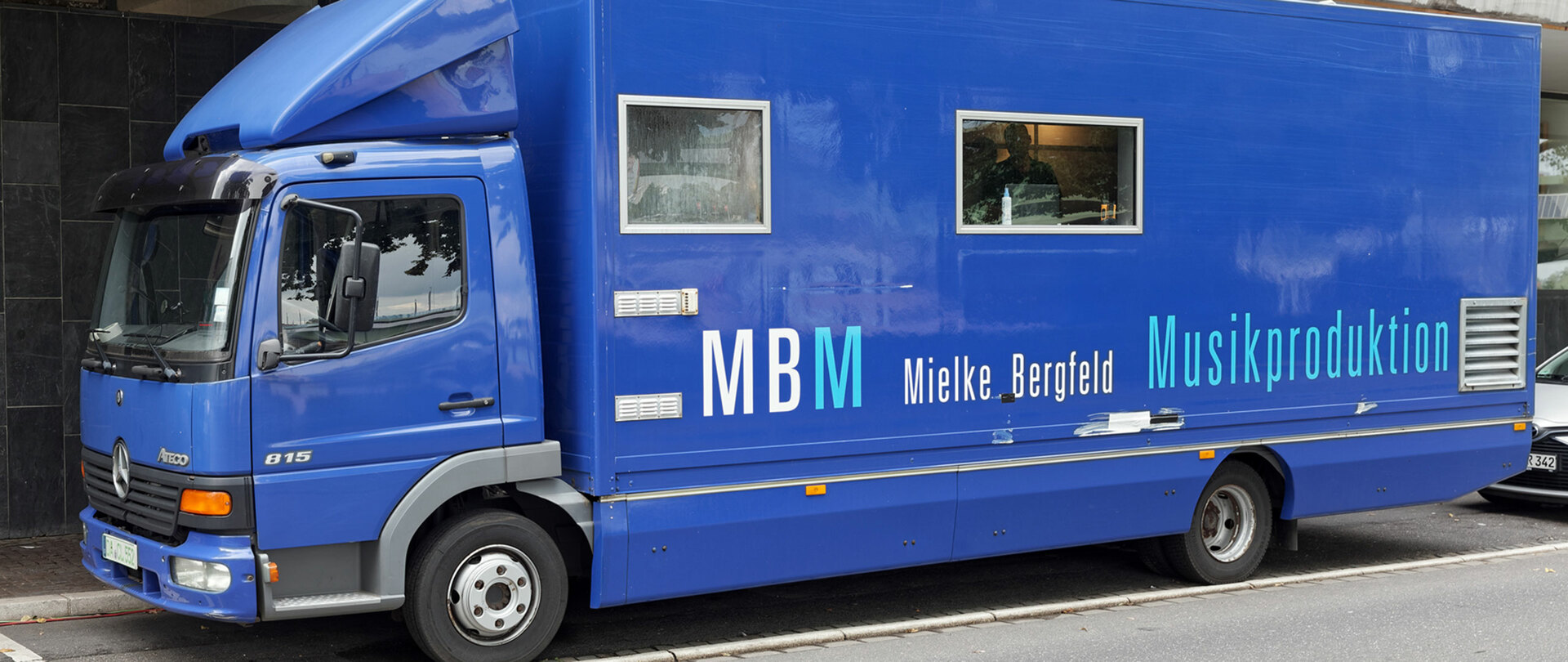MBM Mielke Bergfeld Musikproduktion OHG, based in Darmstadt, Germany, specialises in making classical music recordings of the highest quality and was founded in 1998 by Olaf Mielke, Dipl.-Tonmeister/ Recording Producer, and Moritz Bergfeld, Dipl.-Tonmeister, Professor of Music Production, Post-Production and Music Acoustics at Darmstadt University of Applied Sciences.
“Moritz and I both went to Detmold University of Music and it was while we were still students of sound engineering there that we already decided that we wanted set up our own business as sound engineers,” Olaf Mielke recalls. The company MBM was founded at a time when the large record companies were significantly reducing their music projects due to a decline in the sales of recorded music on physical media, while at the same time the universities in Detmold and Berlin were still turning out a relatively large number of sound engineering graduates. “We were idealistic and optimistic,” says Olaf Mielke, commenting on the foundation of MBM, a risky venture that certainly required a good deal of courage.
MKH as service provider and label operator
The young entrepreneurs were helped by the fact that music was being distributed increasingly through other formats such as streaming, and this trend is continuing: “More recordings are being made now than ever before,” Olaf Mielke points out, referring to orders from record companies, radio stations, film and TV producers, musicians and music festivals who all want to launch ambitious projects on their own. After more than two decades and countless projects, it is now absolutely clear that the decision to found the company was spot on, especially because there is an international demand for the services provided by MBM. In Germany and neighbouring countries, they are regularly out on location in their OB van, which is fully equipped according to their needs. MBM also has a post-production studio, but specialises in on-location recordings.
One focus of MBM’s classical music portfolio is on ‘early music’, which is often recorded with historical instruments at their original performance locations and for which there is currently a great demand. MBM sees itself primarily as a service provider, but is also active as a label operator (Coviello Classics).
“As a classical tonmeister, I want to capture the sound with all its nuances, as naturally and as true to the original as possible,” says Olaf Mielke, expressing his credo. “From this perspective, I find the digital microphones from Sennheiser and Neumann extremely attractive with their exceptionally fine resolution.”
MKH 8000 series: natural sound true to the original
In keeping with Mielke’s statement, MBM has eight Sennheiser MZD 8000 digital modules as well as nine digital Neumann KM D output stages and three digital Neumann D-01 large diaphragm micro-phones. MBM currently uses two RME DMC 842 interfaces/ controllers for digital microphones, and a third device is to be added soon, making it possible, for example, to use a 24 configuration to record a small orchestra entirely with digital microphones.
Olaf Mielke is a self-confessed fan of the Sennheiser MKH 8000 series: “For MBM, the Sennheiser MKH 8000 series is our preferred product range. Before the 8000 series became available, we had already bought a lot of products from Neumann’s first modular small-diaphragm microphone system. To this day, the capsules and output stages have done their job without any problems, and our Neumann inventory also includes pressure receivers with diffuse-field equalisation. We now have 16 microphones from the Sennheiser 8000 series: ten MKH 8040 cardioids, two 8020 omnis, two 8050 super-cardioids and two 8090s with a wide cardioid pick-up pattern.”
The numerous advantages of the microphones from the Sennheiser MKH 8000 series include a wider frequency response that extends from below 10 Hz to more than 50 kHz. In order to record and process this vast frequency range, MBM relies whenever possible on an audio workflow with a word length of 24 bits at a sampling rate of 96 kHz, with some projects even working with 192 kHz. The only exceptions are radio and film productions, where the preferred sampling rate is traditionally 48 kHz. For selected customers in Germany, Japan and the USA, MBM also provides productions in a 5.1 surround sound format. MBM is also seriously considering the possibility of immersive audio recordings using formats such as Dolby Atmos.
"Even after more than 20 years in the business, Moritz and I are still incredibly passionate about what we do,” says Olaf Mielke. “For us, sound recordings are not necessary work, but purely and simply our lives!”